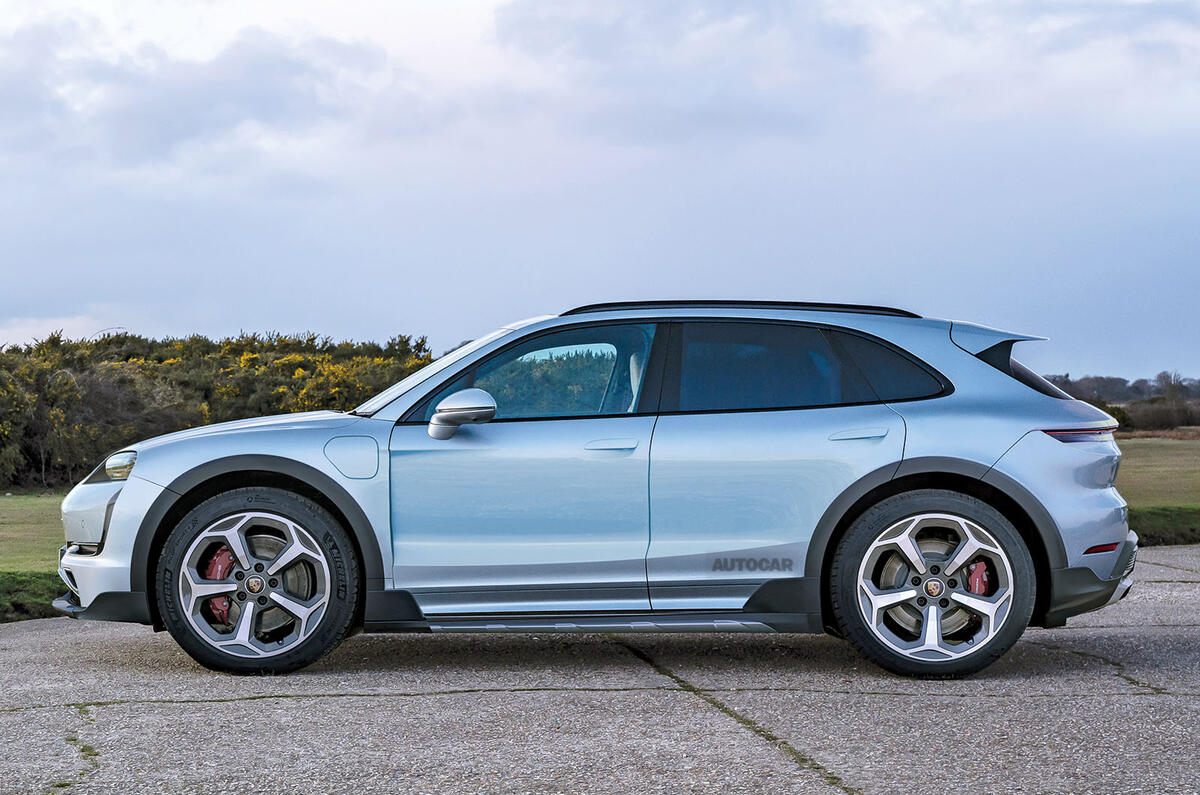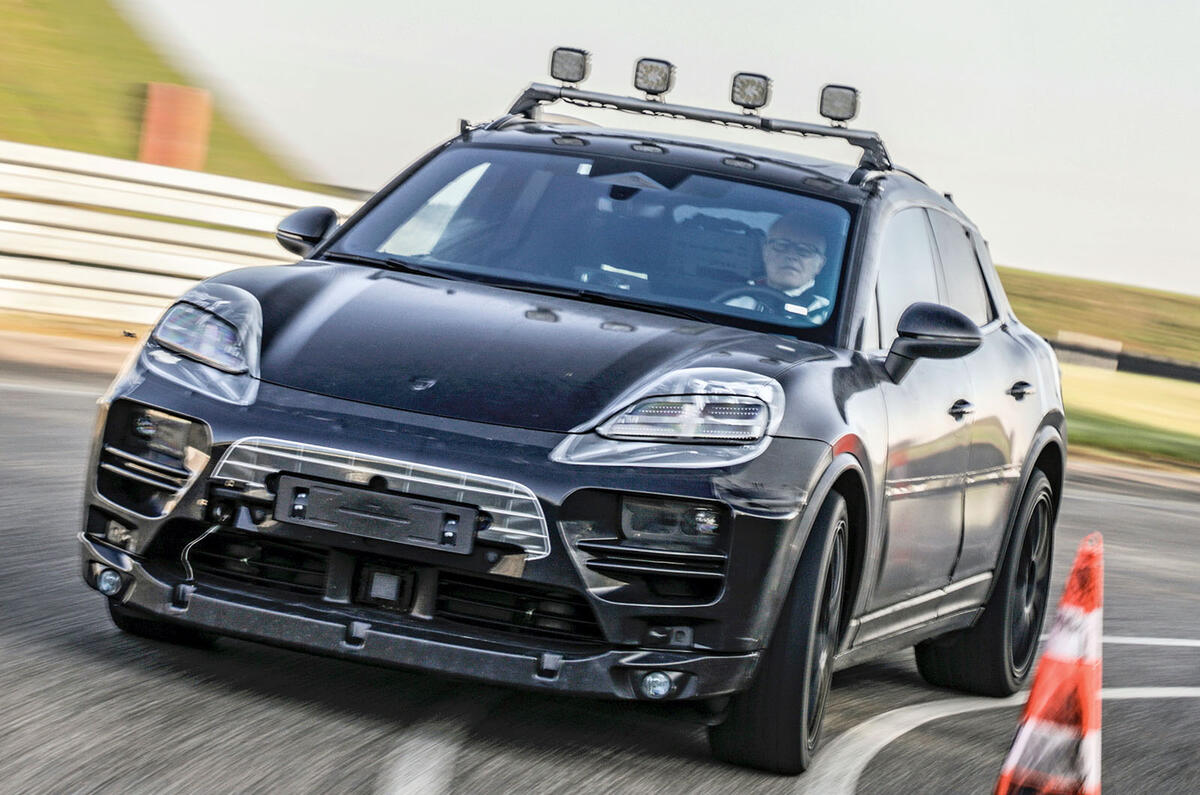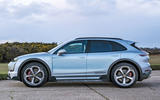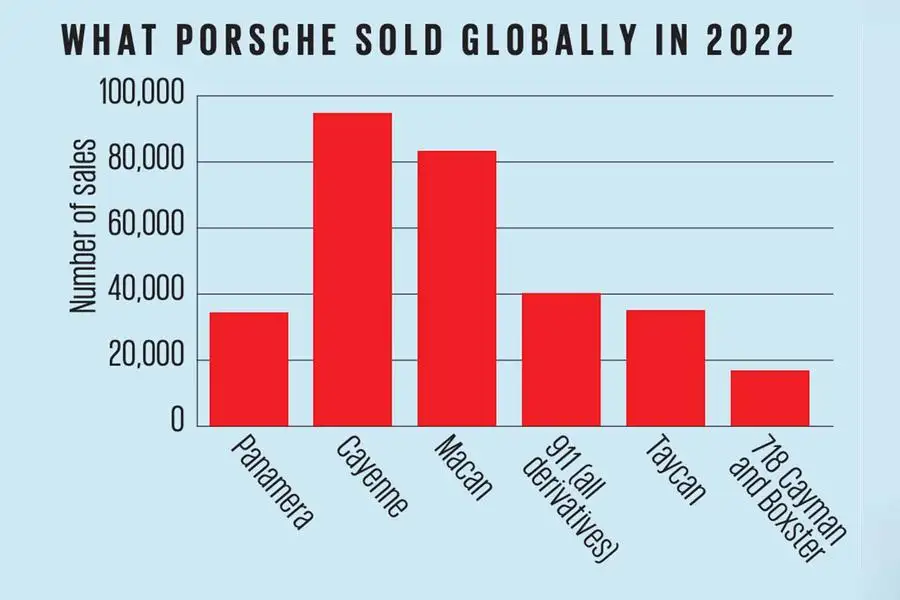Porsche has confirmed plans for an electric version of the Porsche Cayenne, which remains comfortably its best-selling car.
Expected to launch in 2026, it will be sold alongside facelifted versions of the petrol and plug-in hybrid Cayennes, which will receive a significant round of updates aimed at sustaining their appeal past the middle of the decade.
The EV will arrive around two years after the delayed electric Porsche Macan and a year before the marque’s new K1 range-topping crossover.
The electric Cayenne will provide Porsche with a crucial zero-emissions alternative to the car that has underpinned its dramatic growth trajectory over the past two decades.
At its annual general meeting this morning, Porsche confirmed the Cayenne EV – the first time it has has officially recognised plans to provide its best-seller with an electric driveline option.
It added: “The fourth generation of the SUV will underline Porsche’s goal of delivering more than 80% of its new vehicles as electric models in 2030."
No timing for the introduction of Porsche’s fifth EV has been made, although Autocar sources suggest it is being earmarked for launch in 2026, with UK sales likely in 2027.
The Cayenne EV – an official name for which has not been confirmed – will use the same Premium Platform Electric (PPE) architecture as its smaller Macan sibling and the closely related Audi Q6 E-tron due by the end of this year. This means it's in line to receive the same advanced torque-vectoring technology and four-wheel steering functionality in a bid to carry some of the Cayenne’s trademark sports car-aping dynamics into the electric era.
It will be engineered to offer outright pace and functionality on a par with today’s top-rung EVs. The PPE platform is confirmed to be fitted with 800V hardware for charging at speeds in excess of 270kW. The Macan EV will be fitted with a 100kWh battery for an expected range of more than 300 miles, but Porsche’s new modular prismatic batteries can be scaled up or down according to the vehicle’s wheelbase, so the larger Cayenne could receive a boost in capacity to go after the long-legged Mercedes-Benz EQS SUV.
As reported by Autocar, the new-generation batteries being rolled out to Porsche EVs will also effectively be able to split into two halves to charge more efficiently at a 400V charger, which could translate into noticeably shorter stops at these more common devices.













Join the debate
Add your comment
The front end doesn't look like the Taycan either. The 4 LED headlights are right, but they aren't recessed. Also the vertical front intake is not connected to the headlight. The rear isn't that wavy. The taillight isn't covered on the top side. The side profile is mostly fine though.
I'm just criticizing this lame attempt to fatten up the Taycan in hopes of making a Cayenne out of it.
No more details. Y'all will see when it releases. Until then try your best to guess. (It will have a cool party trick.)
I am able to create $88/h to complete few jobs on home computer. N1 I’ve never thought that it’s even achievable but my closest mate earning $25k only within five weeks simply working this leading project & she had convinced me to join…Discover extra details by going following link....... www.jobsrevenue.com
"The need for a hot SUV to stand out has never been greater."
The need to end this fashion for, entirely needlessly, fat, overweight SUVs, has never been greater.
Bob you may be right, I agree with your sentiment, but the fact is we are in the minority as the 'market' lusts after ever bigger, ever faster, ever heavier personal transport. It is the same whether you be in Dubai, London, California, Beijing, anywhere in the world. Now politicians could legislate against this if it suited their interest groups? But this is nothing new, and not an SUV thing. Company car Britain always gave managers Granada's, lesser managers, Cortina's, and private buyers made do with Escorts, so unnecessarily bigger, heavier and more powerful vehicles is hardly a new problem?
Tell us more, Dr Economics!
It's certainly not a fashion for some. Anyhow define an SUV in dimensions so as we know which cars are needless.